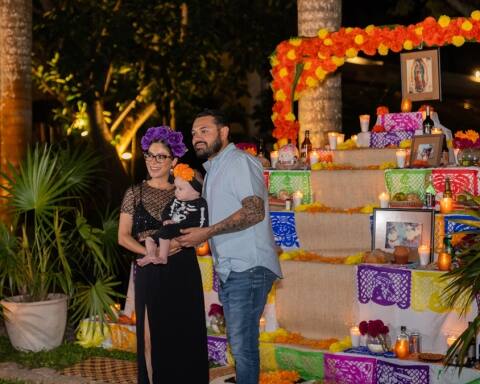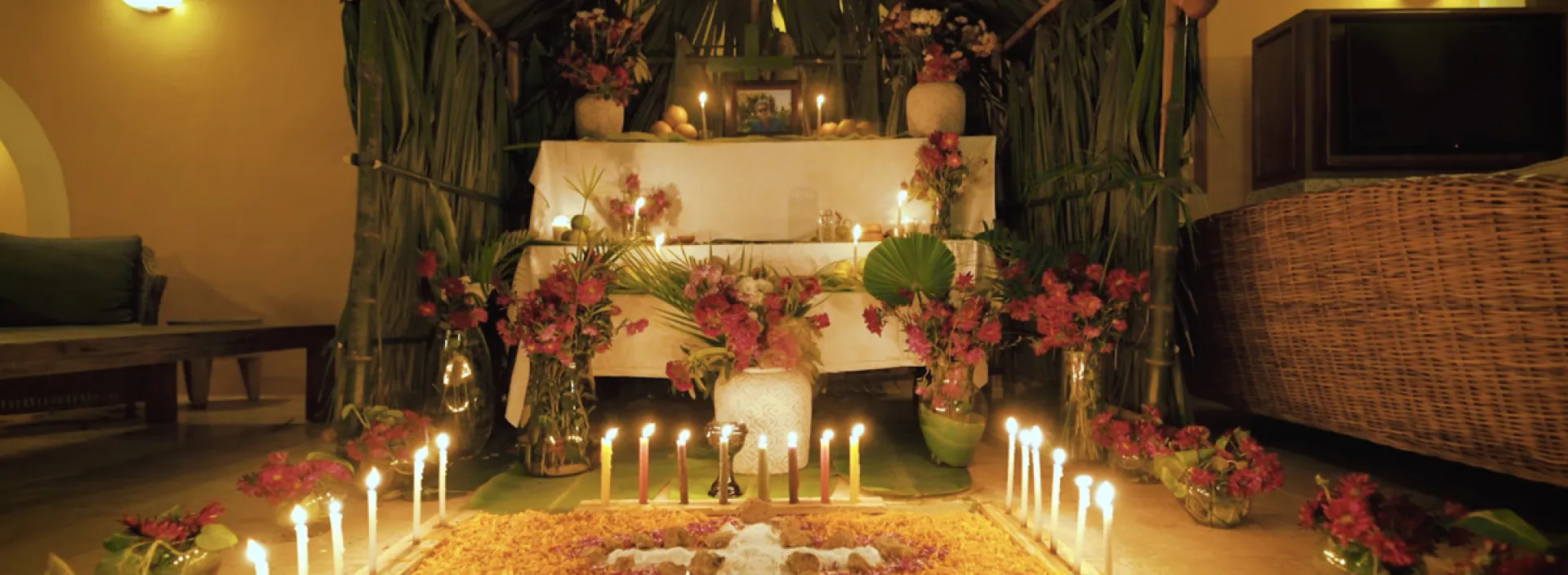OVERVIEW
Celebrate Hanal Pixán, Yucatán’s unique Day of the Dead festival in Mexico. Discover traditional dishes like mucbipollo, soulful trova music, and vibrant vaquería dances that bring this living tradition to life.
- 27/11/2024
- 7 minutes
Amidst the lush gardens and storied walls of Hacienda Xcanatun, Angsana Heritage Collection, the ancient spirit of Hanal Pixán awakens once more. This cherished Yucatan celebration, known as Hanal Pixán (Mayan for “food for the souls”), embodies the warmth and reverence with which locals honour their departed loved ones.
While both Hanal Pixán and Dia de los Muertos honour the dead, they differ in their origins and practices. Dia de los Muertos is celebrated across Mexico with elaborate altars, parades, and skull imagery influenced by Aztec and Catholic traditions. Hanal Pixán, however, is deeply rooted in Maya culture, focusing on offerings of food (particularly mucbipollo) and community gatherings centred around dance and music.
The distinction lies in their essence: Hanal Pixán is a quieter, more intimate celebration that emphasises family connections and the enduring ties between the living and the departed. Hacienda Xcanatun, Angsana Heritage Collection brings this unique cultural experience to life, offering guests a chance to explore the region’s lesser-known traditions.
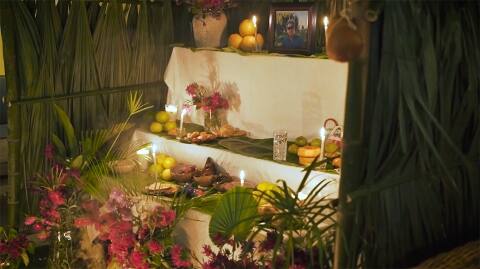
Discover Hanal Pixan in Yucatan
Positioned just 25 minutes from downtown Merida, Mexico, Hacienda Xcanatun, Angsana Heritage Collection is both a cultural destination and a historical landmark. Originally an 18th-century henequen hacienda (cotton plantation), the estate has been restored to reflect its colonial grandeur while incorporating contemporary comforts.
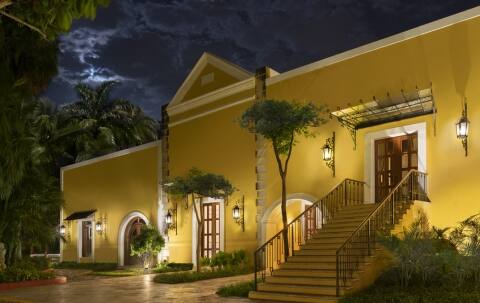
As the setting for this deeply meaningful event, there are 101 things to do at Hacienda Xcanatun, Angsana Heritage Collection, one of which is to experience Hanal Pixán in Yucatan.
From guided tours that unveil the stories behind the hacienda’s architecture to the immersive experience of witnessing culturally rich gastronomy, trova, and vaquerías in action, the celebration offers a connection to Yucatan’s cultural essence that transcends mere observation.

For guests at the property, the occasion presents a rare opportunity to partake in a living tradition that honours the cycle of life through joyful ceremonies, vibrant music, and feasts steeped in history by immersing in three core pillars of the festival: Gastronomía, Trova, and Vaquerías.
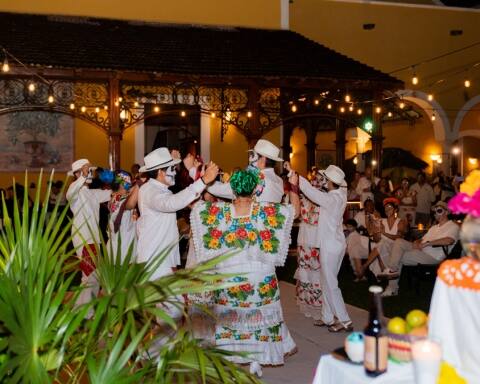
Gastronomía (Taste): A culinary homage to tradition
Central to any Yucatan celebration is the shared experience of food, and Hanal Pixán at Hacienda Xcanatun, Angsana Heritage Collection is no exception.
Part of Hanal Pixán is a celebration of life through food. The centrepiece is mucbipollo, a traditional Yucatan delicacy. Often called “pibil tamale,” mucbipollo is prepared by slow-cooking a dough made from masa, pork, or chicken, seasoned with spices and wrapped in banana leaves. It’s then buried in an underground oven, an ancient cooking method that imbues the dish with smoky, rich flavours. It is similar to the ancient method used for cochinita pibil (Yucatan-style barbecued pork).
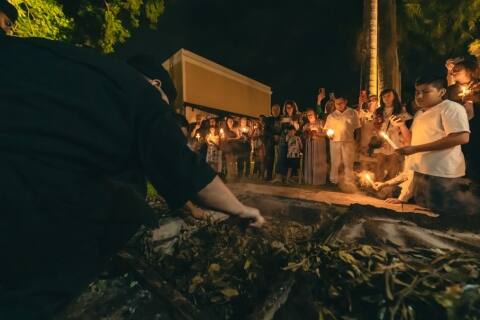
Guests at the property can savour mucbipollo alongside other traditional dishes like panuchos (fried tortillas stuffed with beans), lime soup, and empanadas made with chaya, a regional herb. These dishes are elevated by pairings from La Casa Miguel Hernández, enhancing the dining experience with locally inspired beverages. Against the backdrop of the hacienda’s candlelit gardens, the meal becomes a multi-sensory journey.
Chef Gregorio Oy, known for his passion for Yucatan’s culinary heritage, ensures every dish reflects the love and reverence central to Hanal Pixán. “Everything we prepare with love creates lasting memories,” he says.
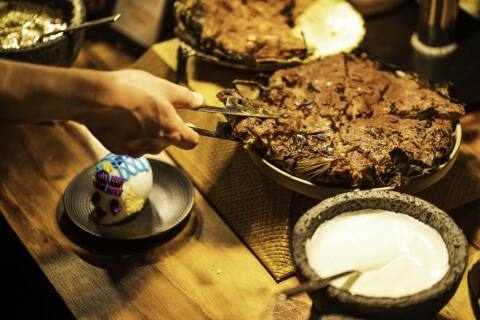
Trova (Listen): The music of Yucatan’s soul
Music is the heartbeat of the Hanal Pixán festival in Yucatan, and trova, a traditional style of romantic ballads, takes centre stage. Originating in the late 19th century, trova blends elements of waltz, bolero, and habanera, creating melodies that are both heartfelt and nostalgic. The trovadores of Yucatan sing with a sense of pride and nostalgia, their music connecting generations through melodies that speak of love, family, and tradition.
At the hotel, guests enjoy live trova performances under the stars. The music, performed by skilled trovadores, captures the spirit of Yucatan with poetic lyrics and evocative guitar harmonies. Each song offers a window into the region’s soul, celebrating love, loss, and the enduring ties of family.
Vaquerías (Move): A joyful dance of heritage
Vaquerías, the lively dances central to Hanal Pixán, originated during the colonial era as celebrations of ranching life. Traditionally, these events marked the end of cattle branding with communal dancing, music, and festivities.
Today, vaquerías are a vibrant blend of Maya and Spanish influences. Dancers wear traditional embroidered dresses and white linen suits, moving in intricate steps to the upbeat rhythm of the jarana, a hallmark dance of Yucatan.
At Hacienda Xcanatun, Angsana Heritage Collection, this vaquería tradition comes alive, inviting guests to join the Yucatecan community in a cultural exchange that expresses the joyful resilience of the Yucatan people. As part of the Hanal Pixán festivities, guests are welcomed to experience the heartfelt excitement of the jarana, marvelling at the intricate footwork and jubilant atmosphere of this timeless dance.
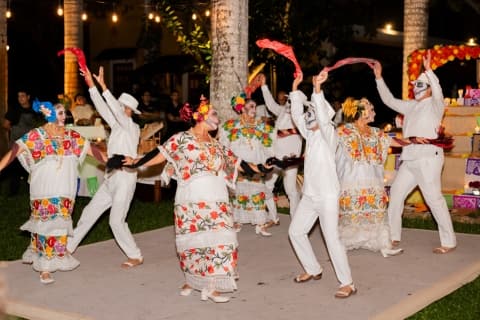
A journey through Yucatan’s heartbeat
Hanal Pixán at Hacienda Xcanatun, Angsana Heritage Collection, is more than a festival; it is an invitation to explore Yucatan’s cultural heart. From the spirited dances of the vaquería to the heartwarming dishes prepared with love and the soul-stirring melodies of trova, every aspect of the celebration welcomes guests into a world where history and heritage come alive.
Hacienda Xcanatun, Angsana Heritage Collection offers travellers a rare and meaningful journey—one that honours the past while celebrating the present, leaving guests with memories as vibrant as the traditions themselves.
